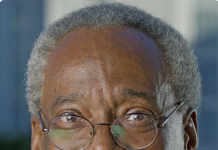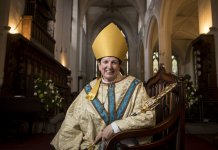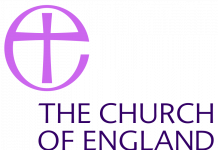The Anglican Church of Canada will maintain its traditional definition of marriage after a vote to amend the marriage canon failed to pass at General Synod 2019.
The 42nd General Synod voted against Resolution A052-R2, which would have amended the marriage canon to allow for same-sex marriage, after the resolution failed to pass by a two-thirds majority in all three orders. While two-thirds of the Order of Laity (80.9%) and Order of Clergy (73.2%) voted in favour, less than the required two-thirds (62.2%) voted in favour of the resolution in the Order of Bishops.
The final results of the vote, which took place on the evening of July 12 at the Sheraton Vancouver Wall Centre, were as follows: The Order of Laity saw 89 members (80.9%) vote Yes and 21 members (19.1%) vote No, with one abstention. The Order of Clergy had 60 members (73.2%) voting Yes, 22 members (26.8%) voting No, and two abstentions. In the Order of Bishops, 23 members (62.2%) voted Yes and 14 members (37.8%) voted No, with two abstentions.
The announcement of the result left many synod members visibly in shock. A scream could be heard. Many members began crying, and one young delegate ran out of the room in tears.
General Synod’s rules of procedure may leave room for the subject of same-sex marriage to return to the floor. Questions about ways to vote again on the matter, as well as memories of General Synod 2016’s changing vote count, suggest the topic may not be closed until General Synod concludes its business on July 16.
For example, some delegates approached the microphone and asked about potential methods by which General Synod could reconsider a vote, to which Chancellor David Jones responded. But Archbishop and Primate Fred Hiltz pointedly drew the night to a close.
“Friends, notwithstanding that there are more people coming to microphones, I am just so conscious of pain in this place,” the Primate said.
Acknowledging the observation of a member of synod, he noted, “Our children are crying. And many of you are crying, for a variety of reasons. So I think it’s time to adjourn. It’s time to leave this hall in silence. It’s time for you to go and do what you need to do—to cry, or to gather with delegates from your own diocese; to gather with friends, to gather in circles of prayer, just to try and be attentive to one another.
“If there are proposals for revisiting the matter, there are provisions for how to deal with that,” he added. “If there are proposals for other resolutions on the same matter, there are provisions for how to deal with that. But it needs to be at another moment in this synod.”
Resolution A052-R2 to amend the marriage canon, as put forward at General Synod 2019, served as the second reading for the amendment following a first reading at General Synod 2016. The resolution declared that Canon XXI, On Marriage in the Church, “applies to all persons who are duly qualified by civil law to enter into marriage.” It would have changed the wording of the canon to replace all references to “man and woman” and “husband and wife” with “the parties to the marriage.”
The amended marriage canon, based on the resolution, would also have stated that “a minister may only solemnize a marriage between persons of the same sex if authorized by the diocesan bishop.”
Earlier in the day, General Synod members voted to amend the original Resolution A052 to add two paragraphs to the preface of Canon XXI. The first stated that “faithful members of the Anglican Church of Canada have different understandings and teachings about the nature of marriage,” and that Anglicans are entitled to hold different views provided they “recognize and respect” that others may, with integrity, hold different views.
The second paragraph stated that General Synod “recognizes that Indigenous communities have particular understandings about the nature of marriage as well as their own ways of making decisions,” and that Indigenous people “will continue to discern whether same-sex marriage would be acceptable in their communities.”
A motion to divide this amendment and vote on each paragraph separately failed to pass, with 153 members (66.8%) voting No, 76 members (33.2%) voting Yes, and three abstaining. The original motion to amend Resolution A052 with both paragraphs subsequently carried, with 206 voting Yes (89.6%), 24 voting No (10.4%), and two members abstaining.
Another resolution passed during the afternoon, Resolution A101-R1, that adopted the affirmations in the document A Word to the Church concerning the amendments to Canon XXI on marriage. General Synod voted strongly in favour of this motion, with 196 members voting Yes (84.85%), 35 members voting No (15.15%), and two abstentions.
According to Resolution A101-R1, General Synod “affirms the right of Indigenous people and communities to spiritual self-determination” in their decisions regarding same-sex marriage; affirms that bishops and synods in the Anglican Church of Canada hold diverse understandings of the existing marriage canon; and affirms that there is a diversity of understandings and teachings about marriage within the church, and that these are held with “prayerful integrity.”
The resolution also affirms the commitment of the General Synod to presume good faith among those who hold diverse understandings and teachings. Finally, it affirms the commitment of the General Synod to walk together and preserve communion with each other, in Christ, within the church and the Anglican Communion, and with ecumenical partners.










